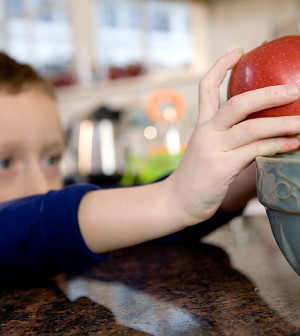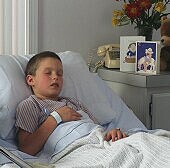- Double Mastectomy May Offer No Survival Benefit to Women With Breast Cancer
- Toxic Lead Found in Cinnamon Product, FDA Says
- Certain Abbott Blood Sugar Monitors May Give Incorrect Readings
- Athletes Can Expect High Ozone, Pollen Counts for Paris Olympics
- Fake Oxycontin Pills Widespread and Potentially Deadly: Report
- Shingles Vaccine Could Lower Dementia Risk
- Your Odds for Accidental Gun Death Rise Greatly in Certain States
- Kids From Poorer Families Less Likely to Survive Cancer
- Tough Workouts Won’t Trigger Cardiac Arrest in Folks With Long QT Syndrome
- At-Home Colon Cancer Test Can Save Lives
Emergency Surgeries on Weekends Riskier for Kids: Study


Children who have emergency surgery on weekends are at greater risk for complications and potentially even death than those who have weekday surgeries, according to a new study.
However, the Johns Hopkins researchers noted that the risk of death was “miniscule.”
The researchers analyzed data on nearly 440,000 simple emergency surgeries that children across the United States underwent over a 22-year period.
The surgeries are considered generally safe and included hernia repair, appendix removal, draining and cleaning of infected wounds, treatment of broken bones, and draining excess fluid in the brain.
Children who had weekend surgeries were 40 percent more likely to suffer surgical complications, and 14 percent more likely to require a blood transfusion than those who had weekday surgeries, according to the study.
Also, children who had weekend surgeries were 63 percent more likely to die than those who had weekday surgeries. However, the researchers noted that the risk of death was “miniscule,” with only 30 deaths over the 22 years attributable to what’s called the “weekend effect.”
“Numerically speaking, the number of deaths was quite small, but even a single preventable death is one too many. This demands that we examine any factors that may cause or contribute to such occurrences and find ways to prevent them,” study senior investigator Dr. Fizan Abdullah, a pediatric surgeon at the Johns Hopkins Children’s Center in Baltimore, said in a Hopkins news release.
The researchers did not examine the possible reasons why children who have emergency surgery on weekends were more likely to suffer complications than those who have weekday surgeries. However, possible factors include fewer hospital staff on weekends, slower response times and less availability of certain imaging and lab tests, the study authors said.
“These are provocative findings and, we hope, a conversation starter,” study lead author Dr. Seth Goldstein, a pediatric surgery resident at Johns Hopkins, said in the news release. “Our next step is to understand the what, how and why behind this alarming disparity.”
The study was published in the July issue of the Journal of Pediatric Surgery.
More information
To learn more about pediatric surgeons, visit the American Pediatric Surgical Association.
Source: HealthDay
Copyright © 2024 HealthDay. All rights reserved.










